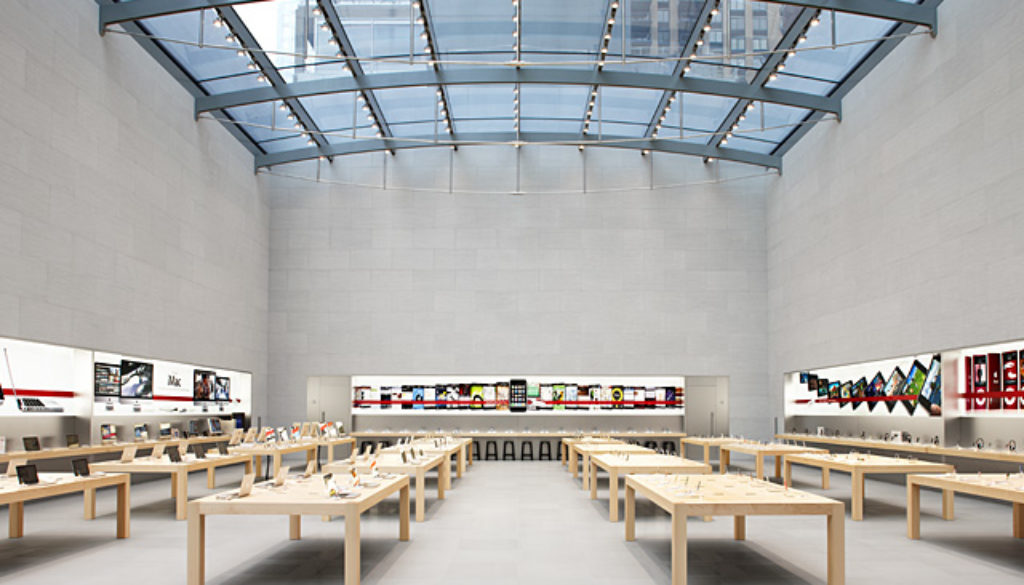How Apple is Winning On Social Media
To say that Apple is successful on social media is an understatement. Even today, a search for #apple on Twitter reveals a post every couple minutes (and sometimes far more often). As a company and as a brand they get regular social media coverage, even when they aren’t releasing new products.

Now you might be thinking, “Wait a minute! Apple doesn’t even use social media!” And you’d be mostly correct. They did launch a tumblr which was their first real foray into any type of social media. Other than that, they’ve been noticeably absent from the key social media channels. They don’t have a Twitter feed. They don’t have any official Facebook accounts. And yet they are one of the most successful brands in driving buzz across social media.
How do they do that? How does a brand that refuses to engage on social media drive such a loyal following and avid discussion on social media?
The answer to that question is actually quite nuanced, and to think that we could entirely answer it in this blog post would be foolish. However, there are a few things we can learn from their business strategy to help us engage our customers better and drive loyalty and discussion via social media.
Build Great Products:
Whenever I have a chance to work with companies to develop their digital strategy, I always want to find out more about their customers. Do their customers like them? Do they leave a trail of satisfied and loyal customers or are they just trying to compete on cost? Do they sacrifice quality for efficiency?
And when I ask these questions, I often get some pushback from companies (which is a warning sign). If they get offended that we ask them these hard questions, they probably aren’t the type of companies we can really help. Marketing isn’t just for the marketing department. Marketing is a whole company venture. And it starts with the product.
And virtually no one knows this better than Apple. In that company, virtually everything they do is marketing. From the moment they sit down to develop the new iPhone, iPad, or software, they are thinking about the customer and how he or she will engage with the product. This is marketing. The design and layout of their stores is marketing. The fact that they even chose to build their own stores was a major marketing decision.

Marketing is happening all the time at Apple. It’s part of the company culture and attitude from the moment the first iteration of the product hits the drawing board. They want to please their customers with great products – maybe even products the customers don’t even know they want yet.
If you have a lousy product, you will never be wildly successful in the long run. Period. No amount of marketing will help.
Build a Great Brand:
Once you have a great product, this is the next logical step. Great brands don’t just represent products. They represent lifestyles. They represent causes. These causes don’t have to be charities. Red Bull represents living an extreme lifestyle. Warby Parker represents great fashion and great prices (and a whole slew of other charitable causes). Apple represents style and simplicity. What does your brand stand for?
Take real estate agents as an example. Most real estate agents use the same marketing tactics – buying ads, putting their faces on billboards, and sending a lot of marketing emails. And this can work. But you’re just competing against all the other agents. Maybe you’ll win. Maybe not. As a customer, I’m as likely to purchase a house from your competitor down the road. In order to grab my attention using traditional methods, you constantly have to pay more and more. You just have to trust that the competitor won’t outspend you on ads.
Now think about the opportunity real estate agents and companies have to build a brand. As a consumer, a house represents one of the largest purchases I will ever make. To me, it’s not just a piece of property, it’s a home. It’s where I’ll spend a large majority of my time. It’s where I’ll feel safe. It’s where I’ll raise my kids.

How much of an opportunity is that? That is one of the easiest businesses to build an emotionally charged brand, yet so few (even major companies) do it successfully. What a missed opportunity!
Get Some People to Dislike You (and Others to Really Like You):
A portion of the discussions across social media related to Apple are always negative. Some people genuinely hate Apple. And that’s wonderful. For every hater there are several people who love Apple products. Although the discussion can sometimes get nasty, this passion can drive brand recognition and make new users aware of the good (and bad) points of your product.

A quick Google search of “I hate Apple” reveals a Facebook page with over 33,000 likes. That’s more than most businesses will ever have! Chances are, more people publicly hate Apple than like your business on Facebook. How’s that for social media success?
A word of warning: If you just have haters and no fans, chances are your product or company sucks. Fix that before you even think about a marketing campaign.
Be Predictably Unpredictable:
Finally, Apple is predictably unpredictable. Their customers don’t know what products are coming out next or what new fields they will try to disrupt. As a result, they lure their biggest fans into speculating on what they might do next. They drive discussion by encouraging speculation.
Where Apple is predictable is in their quality. By and large (with a few notable exceptions) they’ve managed to create products that meet or exceed the expectations of their loyal fans for years. Since the first iPhone, they’ve continued to innovate and push the envelope of what is possible at the intersection of hardware and software. And they’ve done so while being wildly successful from a financial standpoint.
When you buy an Apple product, you always know that it will be simple and well designed. You just don’t yet know what it might look like.
Takeaways:
So what does this mean for your business? First, success on social starts at the core of your business. If you just hire a community manager and expect them to run your entire social media brand with no help on content or from other departments, you’re setting yourself up for failure. Make your social media an extension of your brand and not a facade to be managed.
Also, if you’re awesome enough in real life, other people will talk about what you’re doing. This free PR is the backbone of great brands. So be awesome enough that people in your niche are willing to talk about you. That’s easy to say and hard to do, but if you can do it, you’ll have the most loyal fan following you can imagine.
TL;DR:
Apple is fantastically successful on social media, yet they have no real social media channels. By building a great company and great products, they let other people talk about the company. Getting others to talk about your brand is tough, and it takes really good products and a great brand. However, it is the pinnacle of social media success.



